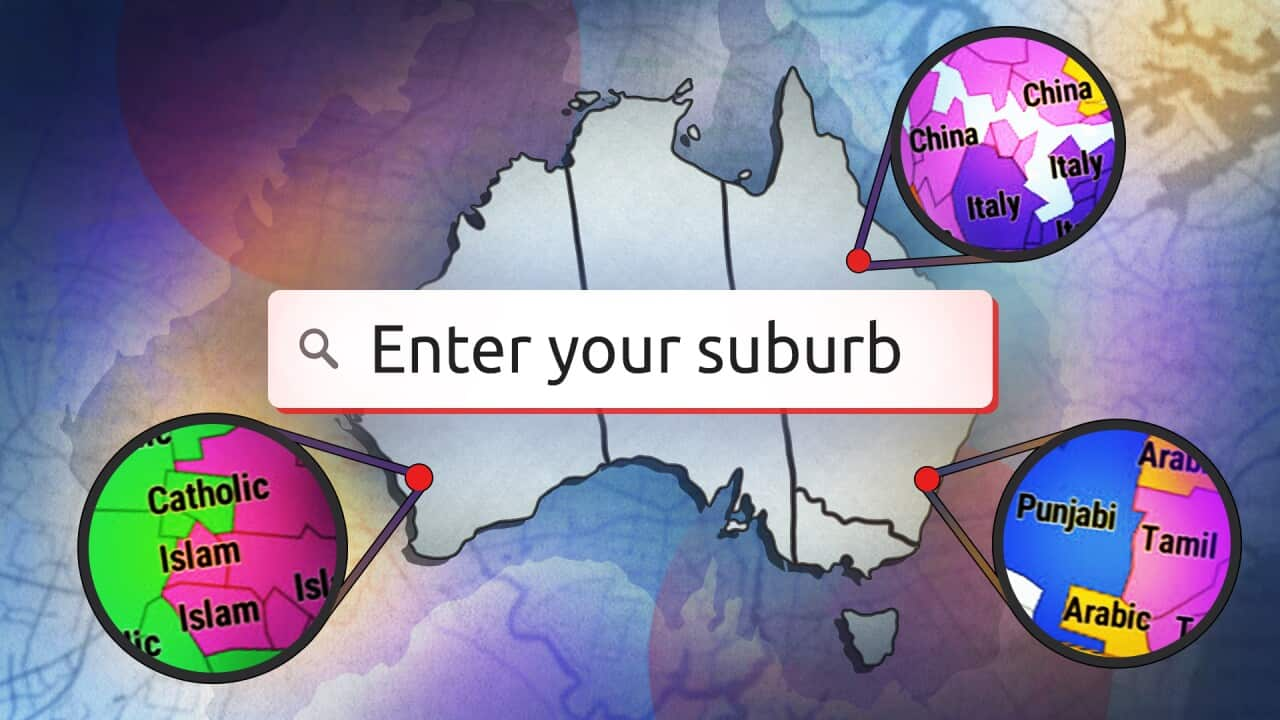

5 min read
This article is more than 2 years old
David isn't the only Jew in Tasmania, although sometimes it feels that way
Tasmania is home to Australia’s oldest surviving synagogue, but there hasn’t been a full-time rabbi in it for years, and Jewish life here can come with its challenges.
Published 24 December 2022 7:42am
Updated 26 December 2022 10:12am
By Sarah Maunder
Source: SBS News
Image: David Clark at the Hobart Hebrew Congregation's 2022 Hanukkah picnic. (SBS News / Sarah Maunder)
Every Saturday on the Shabbat, 82-year-old David Clark walks 45 minutes from his home in Sandy Bay to the synagogue in Hobart’s town centre.
David is an Orthodox Jew, which means he follows the traditional and conservative teachings of Judaism.
The Shabbat (or Sabbath) is the day of rest, and he observes it by not doing any tasks that could be considered working, including driving.
“I walk 45 minutes here and back on my day of rest, no matter the weather, to come here and pray.”
Hobart’s synagogue is the oldest surviving synagogue in Australia. Consecrated in 1845, it was built on land donated by former convict Judah Solomon.

The synagogue in Hobart is Australia's oldest surviving synagogue. Source: SBS News / Sarah Maunder
According to the book Edge of the Diaspora by Suzanne D. Rutland, the Tasmanian Jewish population was only 152 in 1837, and of those 152 people, only eight were free settlers.
By the time of the first Census in 1911, there were 191,211 people calling Tasmania home and even fewer (130) identified as Jewish.
READ MORE

How multicultural is your suburb?
Today, Tasmania's population has grown to 558,000, according to the 2021 Census, but only 266 people say they have Jewish ancestry, while 376 people identify as Jewish, making it the smallest state population in the country.
The populations are even smaller in the NT and ACT, and by capita, South Australia is marginally smaller.
A total of 99,948 people across Australia say they follow the Jewish religion.

Source: SBS News
“[Membership] numbers have actually gone up quite a bit in the last five or so years,” he says.
“There’s various factors involved; I think one of them is COVID, and people in the big cities on the mainland are looking to escape that and come to Hobart with beautiful scenery and a slower pace of life - their priorities have changed.”
Jeff is from Maryland in the United States and had only been to Tasmania once for a week-long holiday before he moved to Hobart in 2014 with his Australian wife Lisa after she was offered a job at the University of Tasmania.
“As much as you can know a place in a week, we really liked it, so we were happy to come back,” he says.
Jeff says one of the strengths of the Hobart Hebrew Congregation is the diversity of its members. The synagogue holds Orthodox and progressive services, and the congregation is not exclusively aligned with any particular stream of Judaism.

Jeff Schneider is the president of the Hobart Hebrew Congregation. Source: SBS News / Sarah Maunder
“We have people from all over the world, people who come from all different types of Jewish traditions, we learn about Judaism by just being exposed to so many different elements.
“In Melbourne or Sydney, you have all these choices of synagogues that you belong to, you stay with how you want to be Jewish, but here we all come together and it’s a really good thing.”
The Hobart Hebrew Congregation though is entirely run by its volunteer members, which can sometimes be a challenge.
“Like leading services,” Jeff says.

There hasn't been a full-time rabbi at the Hobart synagogue since the late 1950s. Source: SBS News / Sarah Maunder
“We do have an excellent group of leaders that lead the services, but there are times where you’re struggling to find people. If someone gets sick, you might have to cancel the service,” Jeff says.
“We’ve recently started a once-a-month education program for the kids, and it’s been great but, you know, if we were living in Sydney or Melbourne, the kids would probably be in a once-a-week class.”
David says another big challenge of being an Orthodox Jew in a small place like Tasmania is finding kosher food.
Jewish law prescribes what foods can and cannot be eaten, and how they must be prepared and eaten.
“A lot of things are kosher, of course, like fresh vegetables and canned products,” David says.
And it's become a little easier with the popularity of plant-based 'meat' products as well, he adds.
“We have a rabbi in Launceston who comes down occasionally. He makes an expedition to Melbourne and fills up a van with kosher meat and drives around providing us with that. We do have to pay for it, but he delivers!” he laughs.
David retired when he was 55 and has since dedicated his life to his faith and supporting the congregation.
“I run my house as a Jewish centre because the synagogue can’t support staff or anything like that, so [the synagogue] is locked up for much of the week.”
He's hopeful the community here will grow.
“While the Jewish percentage around the world is pretty small, if they all decide they want to come here to Tasmania, it wouldn’t take much, by general population standards to have a few hundred or a thousand or two here! We’d have to build another synagogue!"
The Jewish festival of Hanukkah runs until 26 December.
Correction: A previous version of this article attributed the book Edge of the Diaspora to a different author. This has been corrected.


